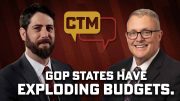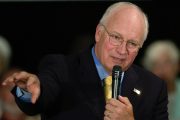
Prime Minister Justin Trudeau banned some 1,500 makes and models of military-grade “assault-style” weapons in Canada in May of 2020, shortly after the mass killings in Novia Scotia. That ban ended licensed gun owners being allowed to sell, transport, import, or use these sorts of weapons in Canada.
At that time, Public Safety Minister Bill Blair said, “As of today, the market for assault weapons in Canada is closed. Enough is enough…. Banning assault-style firearms will save Canadian lives.”
Now, Trudeau and Canada’s Liberal government are preparing to launch the mandatory buyback of the outlawed weapons, and several provinces and territories say they won’t assist in the process.
“The most strident opponents, including the United Conservative Party government in Alberta, are suggesting the Royal Canadian Mounted Police [RCMP] ‘refuse to participate,’” reported The Washington Post.
Part of the provincial government’s concern is that this gun confiscation program pushed by the Canadian federal minister in charge of the RCMP is unfunded. In a press release, Alberta’s provincial government stated that “Alberta taxpayers pay more than $750 million annually to fund the RCMP as our provincial police service. Alberta’s government expects that no tax dollars or police resources be wasted implementing a program that will not increase public safety…. Alberta is not legally obligated and has informed Ottawa it will not offer assistance.”
They also advised the commanding officer of the RCMP in Alberta that “pursuant to the Provincial Police Service Agreement (PPSA), the confiscation program is not an objective, priority or goal of the province or the provincial police service, nor is such deployment ‘appropriate to the effective and efficient delivery of police services.’ Consequently, the RCMP should refuse to participate.”
The release continued, “Despite taking this step, the federal government may still direct the RCMP to serve as confiscation agents. To prevent this from happening, Alberta will formally dispute any attempt to do so by invoking Article 23.0 of the PPSA.”
The Post continued:
Marco Mendicino, Canada’s public safety minister, has cast Alberta’s “reckless” position as a “political stunt.” But Saskatchewan, Manitoba and New Brunswick have also balked at using “scarce RCMP resources” for the program.
“New Brunswick’s bottom line is this: RCMP resources are spread thin as it is,” said Public Safety Minister Kris Austin in a press release. “We have made it clear to the Government of Canada that we cannot condone any use of those limited resources, at all, in their planned buyback program.”
The New Brunswick release added, “The four provinces also called on the federal government to ensure that no funding for the Guns and Gang Violence Action Fund or other public safety initiatives be diverted to the federal firearms confiscation program. Instead, they said, funding should be used to fight the criminal misuse of firearms by addressing border integrity, smuggling and trafficking.”
The disagreement over the planned gun grab is adding to the tensions between Ottawa and the provinces. “Alberta and Saskatchewan, long estranged from the capital, recently introduced bills to seek greater ‘sovereignty’ for their provinces and to fight what they see as federal ‘intrusion,’ said the Post.
“Two years ago, the federal government said that using police resources would be ‘expensive and inefficient,’” said Tyler Shandro, Alberta’s minister of justice and solicitor general. “Now the federal government has resorted to using police resources to seize firearms from Canadians.”
Clearly supporting law-abiding citizens and pushing back at Trudeau’s authoritarianism, Saskatchewan’s Corrections, Policing and Public Safety Minister Christine Tell and Justice and Attorney General for Saskatchewan Bronwyn Eyre said, “While we fully support crime initiatives that focus on the issues related to the criminal use of illegal firearms, preventing and combatting gang violence and addressing the issue of illegal or smuggled guns in our province, we don’t support those that impact law-abiding hunters, sport shooters, ranchers, farmers and Indigenous people who use firearms for lawful and good reasons.”
Not all of Canada’s provinces are against the weapons buyback, though. The Washington Post shared that “Yukon’s government said it supports Trudeau’s gun-control proposals and is committed to finding a balance between counteracting the adverse impacts of illegal firearms and respecting hunting rights. But Tracy-Anne McPhee, the territory’s justice minister, has told Mendicino that its RCMP lacks the ‘administrative, personnel or the financial resources’ to participate without additional support, a spokeswoman said.”
Trudeau’s mission to take weapons away from Canadians — escalating his control with this gun grab and October’s national freeze on the sale, purchase, and transfer of handguns — is just another step toward destroying his citizens’ constitutional rights to “life, liberty and security of person.”
His zeal to be a dictator and disarm his constituents is finally running into resistance from the provinces and pro-gun groups. Now it’s up to law-abiding Canadians to continue peaceful dissent and noncompliance — or face living in a police state led by a Marxist fanatic.





